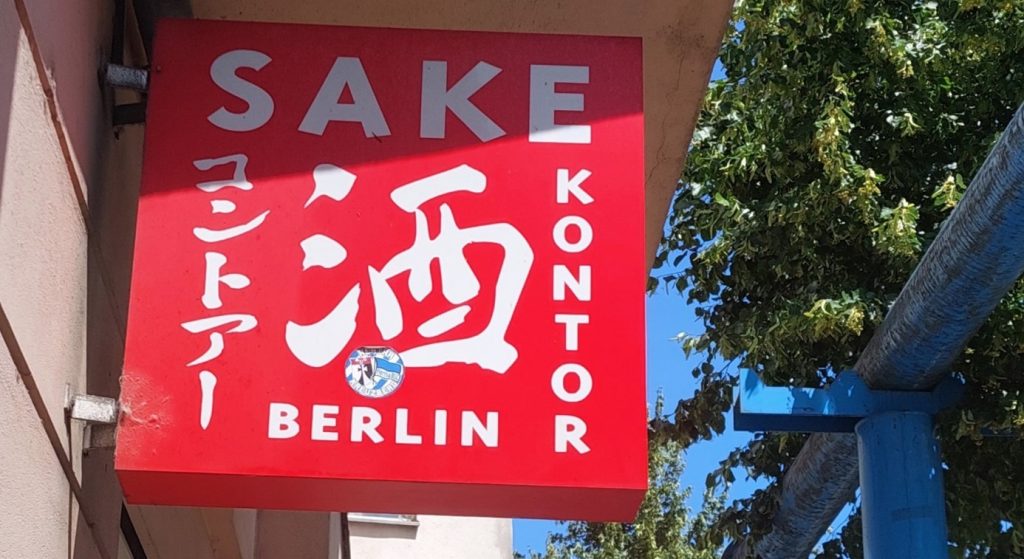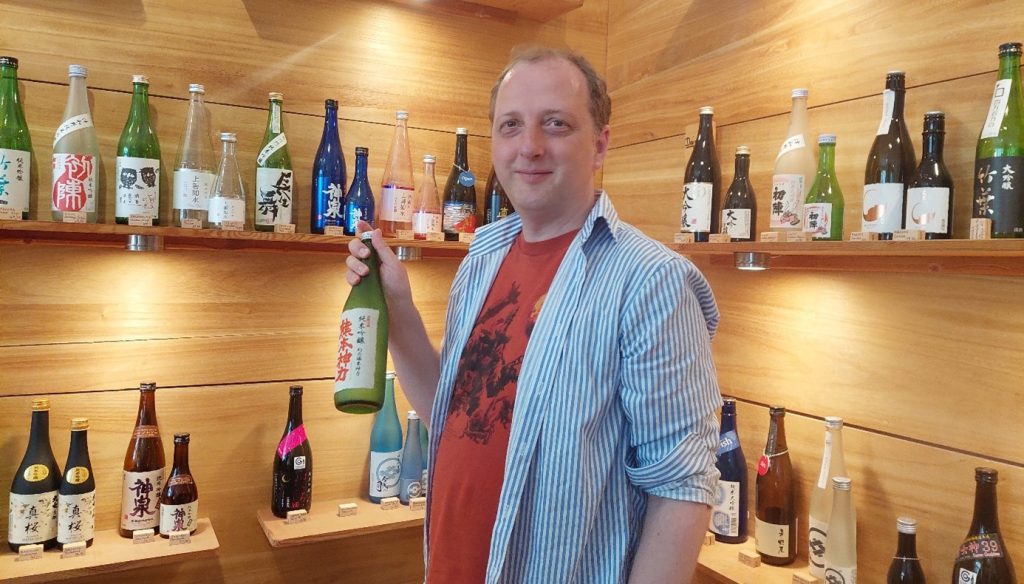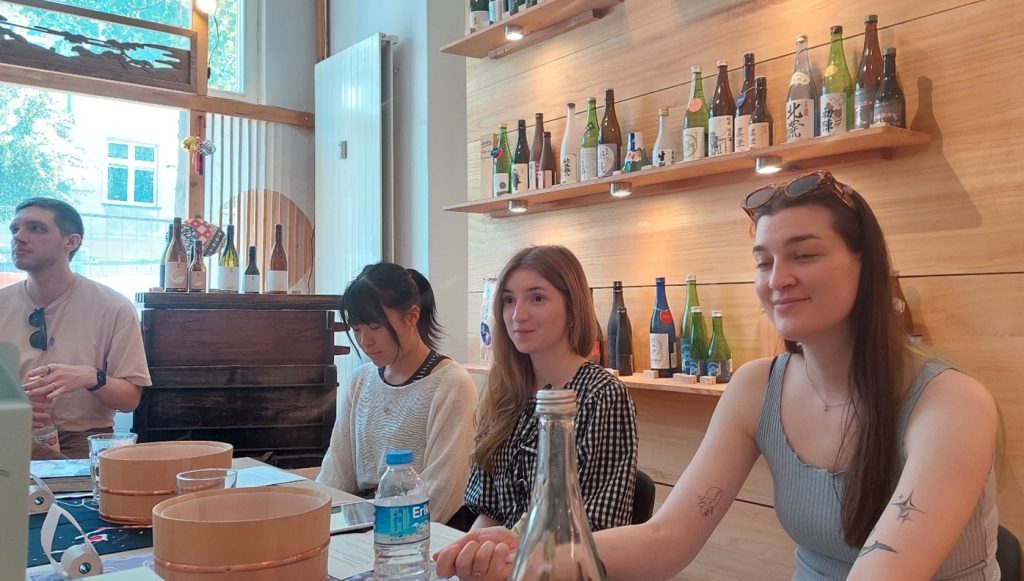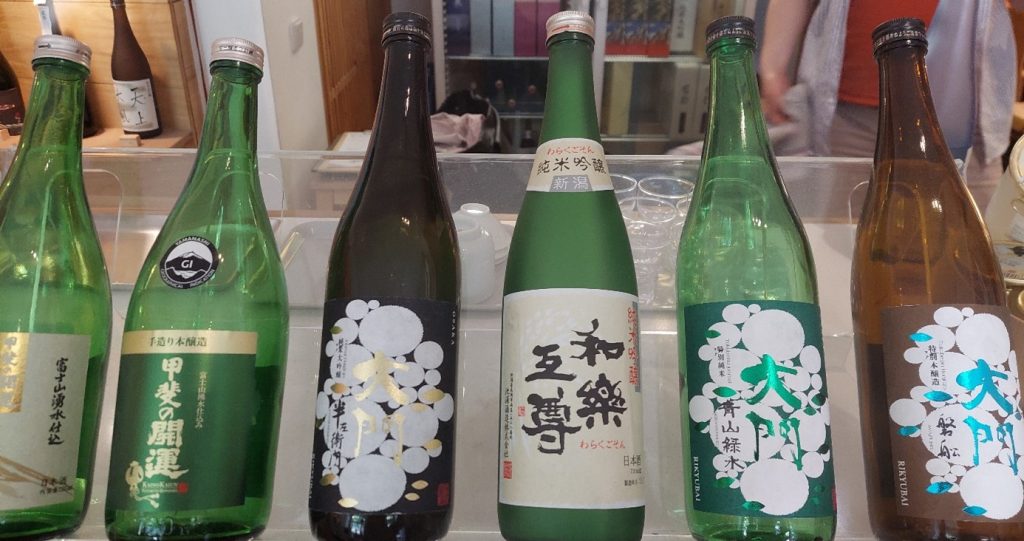by Cornelia Reiher
After our first onsite interview in English at Sake Kontor, our course visited a ramen restaurant in Berlin a week later. We had an appointment with Ribeka Sakamoto, the manager of Niko Niko Ramen, to conduct an interview in Japanese. Since not all course participants speak Japanese, those who were not asking questions were assigned to observe the interview situation and write fieldnotes about the atmosphere and the interactions in the restaurant.
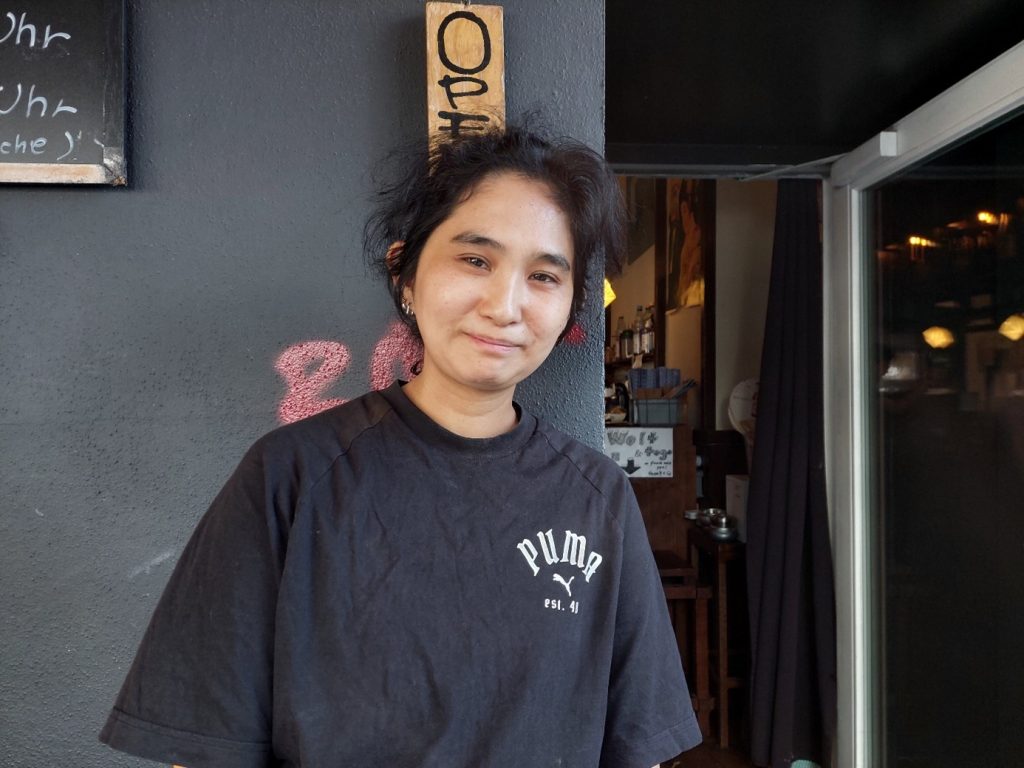
Copyright © Cornelia Reiher 2025
When we arrived at the restaurant, it was noon and the weather was warm and sunny. Customers were sitting outside, enjoying their bowl of ramen for lunch. We stepped inside and were seated in the guestroom. The rustic interior, decorated with anime motifs and Japanese pop culture references, created an inviting and relaxed atmosphere, helping students feel comfortable right away. Following the customary exchange of business cards and thank you gifts, students started to ask the questions they had prepared in advance.

Copyright © Cornelia Reiher 2025
Topics included Ribeka’s migration story, her personal favorite Japanese dishes, the history and concept of the restaurant, and customer preferences in Berlin compared to those in Japan. Being multilingual herself, Ribeka tries to hire staff who speak English, German and ideally Japanese because of the international customers the restaurant attracts. More important than language skills, however, is that the staff are passionate and do their job well. Ribeka also shared interesting observations about the preferences of the restaurants’ European customers who do not seem to like katsuobushi (dried bonito flakes) and fish in general as much as the few Asian customers frequenting the restaurant. However, most of the customers are familiar with ramen when they come to Niko Niko Ramen and the most frequently asked questions about the dishes are whether the noodles are gluten-free— a sign of dietary awareness and food preferences in Berlin.
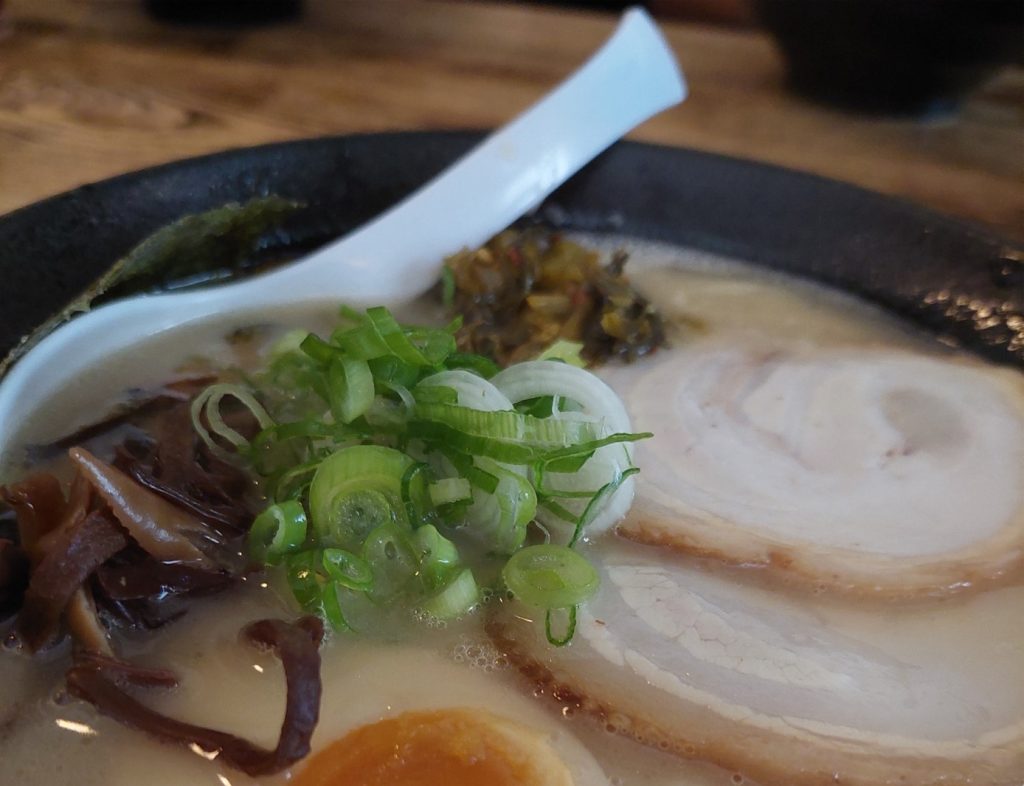
Copyright © Cornelia Reiher 2025
After the interview, everyone ordered a bowl of their preferred ramen. Thanks to the restaurant’s inclusive menu, which has offered vegetarian and vegan options from the very beginning, everyone found something they could enjoy. Several students who had previously traveled to Japan commented that the flavors at Niko Niko Ramen were just as authentic as those they remembered from their time abroad.
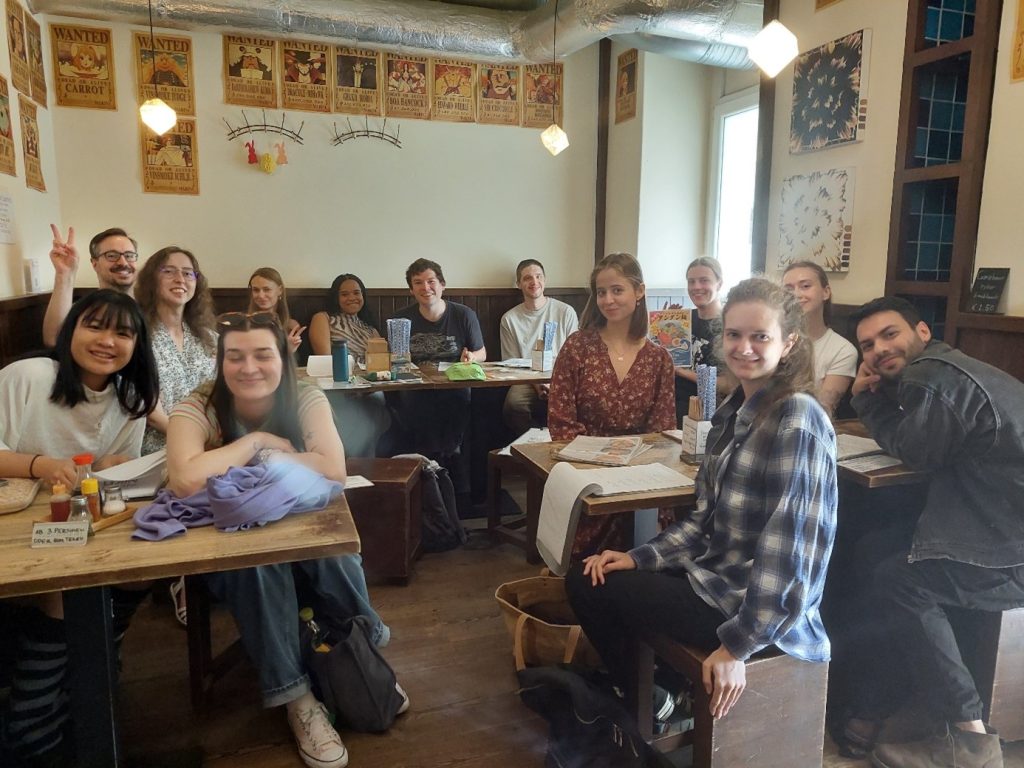
Copyright © Cornelia Reiher 2025
This visit offered students not only a chance to practice fieldwork and language skills in a real-world setting, but also valuable insights into the cultural translation of food and hospitality. Interviews like this one highlight how culinary spaces serve as contact zones—where global migration, local taste, and tradition intersect in the everyday ritual of sharing a meal. Thank you so much, Ribeka Sakamoto for your time!

